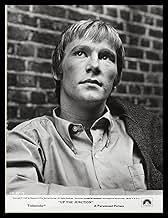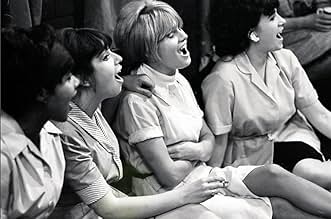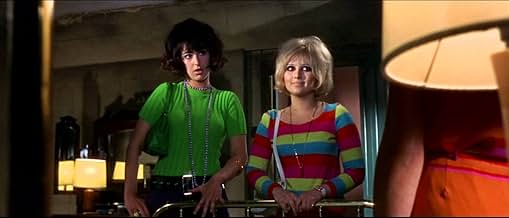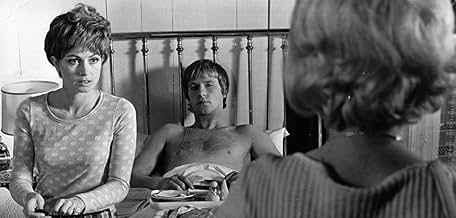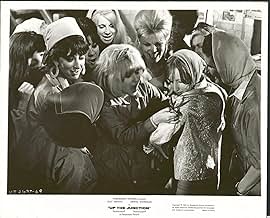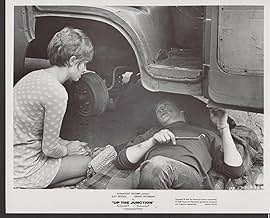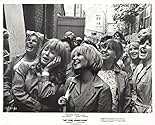IMDb-BEWERTUNG
6,9/10
1062
IHRE BEWERTUNG
Füge eine Handlung in deiner Sprache hinzuAddresses some of the major 60s social issues - a bored rich London-girl from Chelsea decides to go "slumming" in depressed Battersea, getting a flat and starts factory-work and makes friend... Alles lesenAddresses some of the major 60s social issues - a bored rich London-girl from Chelsea decides to go "slumming" in depressed Battersea, getting a flat and starts factory-work and makes friends... of which one has to get an illegal abortion.Addresses some of the major 60s social issues - a bored rich London-girl from Chelsea decides to go "slumming" in depressed Battersea, getting a flat and starts factory-work and makes friends... of which one has to get an illegal abortion.
- Regie
- Drehbuch
- Hauptbesetzung
- Auszeichnungen
- 1 Nominierung insgesamt
Empfohlene Bewertungen
This movie had a profound effect on me when I first craned my neck to see it from the front row of the Haymarket cinema in Newcastle upon Tyne. I was sixteen years old and on date with a guy that had a rich father, a triumph spitfire and the personality of deadwood. I fell deeply in love with Suzy Kendall knowing that it should have been Dennis Waterman. I saw this movie every night for two weeks. It captures those times exquisitely, almost painfully. I just need to hear the opening theme to be transported back. The clash of cultures, the poverty on both sides of the class divide. Polly had money but was surrounded by shallowness and snobbery. Her friends up the junction had loyalty, camaraderie and fun, but struggled to survive, scamming their way from pay day to pub, who was the poorer? Manfred Mann's excellent score insinuates it's way into the fabric of the movie, haunting and evocative. Give this one a chance, you won't regret it.
A portrayal of women's lives in 1960s working class Battersea, through the eyes of a girl from Chelsea, hence an outsider. Based on the better known book by Nell Dunn, from which it departs significantly, making the ill-fated affair with Dennis Waterman's character the central narrative. Beautifully done. Deserves to be better known than it is.
Peter Collinson was already mellowing after his directorial debut with the incredibly nasty home invasion film 'The Penthouse' (1967); and let loose on Nell Dunn's stories in Technicolor with Manfred Mann on the soundtrack was obviously going to turn in a very different film from Ken Loach's 'Wednesday Play' of 1965.
What seemed like gritty realism in 1967 today seems as remote as the world evoked by Dickens (complete with Jewish stereotypes which really date it). Maureen Lipman is almost unrecognisably young and it's always good to see Adrienne Posta and Liz Fraser (who share a literally gut-renching sequence after the former has an abortion performed by a drunken Hylda Baker).
But the real star is Battersea power station, looming in the background back in the days when it was still permitted to smoke.
What seemed like gritty realism in 1967 today seems as remote as the world evoked by Dickens (complete with Jewish stereotypes which really date it). Maureen Lipman is almost unrecognisably young and it's always good to see Adrienne Posta and Liz Fraser (who share a literally gut-renching sequence after the former has an abortion performed by a drunken Hylda Baker).
But the real star is Battersea power station, looming in the background back in the days when it was still permitted to smoke.
A very likeable if dated view of working class 60's London viewed the eyes of upper crust Polly Dean. Several tough and controversial issues (illegal abortions & wife beating) are covered which must have been brave at the time that the film was made. Strangely prophetic in the 'gentrification' of Battersea (one of the up-areas in recent property prices). Having been in the year I was born, I cannot fully comment on the authenticity of this films view of 60's life. However from my perspective and that of older relatives it is fairly accurate. The soundtrack (by Manfred Mann) is a superb slab of sixties beat\psychedelia. The characters are very likeable and the film is in my opinion a good introduction for any scholar of the period. 9/10
Though justifiably not considered a particularly important British film of the late sixties, "Up The Junction" has much genuine charm and remains a film for which I have a lot of affection.
Written by Nell Dunn, who specialized in portraying working class life, the characters are well drawn and brought to life with much conviction by a fine cast, some of whom have lasted and some who somehow faded away.
Whereas leading man Dennis Waterman went on to a long career in both television and on the stage, the lovely Suzy Kendall, who seemed to be headed towards becoming the next Julie Christie, proceeded to an undistinguished career. There's a touching chemistry between the pair.
Likewise the strong supporting players have had varied careers. The pairing of Maureen Lipman and Andrienne Posta was so successful in this film, that there was talk of them becoming a comedy team. Like Waterman, Lipman has been a regular on television and the stage, while Posta simply vanished.
"Up the Junction" too has vanished into obscurity, without even a video release. It's odd that while other far lesser British movies of the same period have been kept alive, this small but very appealing work should suffer such a fate.
Written by Nell Dunn, who specialized in portraying working class life, the characters are well drawn and brought to life with much conviction by a fine cast, some of whom have lasted and some who somehow faded away.
Whereas leading man Dennis Waterman went on to a long career in both television and on the stage, the lovely Suzy Kendall, who seemed to be headed towards becoming the next Julie Christie, proceeded to an undistinguished career. There's a touching chemistry between the pair.
Likewise the strong supporting players have had varied careers. The pairing of Maureen Lipman and Andrienne Posta was so successful in this film, that there was talk of them becoming a comedy team. Like Waterman, Lipman has been a regular on television and the stage, while Posta simply vanished.
"Up the Junction" too has vanished into obscurity, without even a video release. It's odd that while other far lesser British movies of the same period have been kept alive, this small but very appealing work should suffer such a fate.
Wusstest du schon
- WissenswertesLulu turned down the role of Rube.
- PatzerWhen Sylvie and Rube are singing in the pub, there are many cutaways which show the pub customers joining in the songs. On most of these, a large piece of dirt is visible at the top of the frame. Someone didn't perform the obligatory "hair in the gate" check before loading the film.
- VerbindungenFeatured in Film Review: Backs British Films (1968)
- SoundtracksUp The Junction (Main Title)
Written by Mike Hugg and Manfred Mann
Top-Auswahl
Melde dich zum Bewerten an und greife auf die Watchlist für personalisierte Empfehlungen zu.
- How long is Up the Junction?Powered by Alexa
Details
- Erscheinungsdatum
- Herkunftsland
- Sprache
- Auch bekannt als
- Knotenpunkt London
- Drehorte
- Beach Hotel, Marine Parade, Worthing, West Sussex, England, Vereinigtes Königreich(hotel where Pete and Polly stay)
- Produktionsfirmen
- Weitere beteiligte Unternehmen bei IMDbPro anzeigen
- Laufzeit1 Stunde 59 Minuten
- Sound-Mix
- Seitenverhältnis
- 2.35 : 1
Zu dieser Seite beitragen
Bearbeitung vorschlagen oder fehlenden Inhalt hinzufügen

Oberste Lücke
By what name was Up the Junction (1968) officially released in India in English?
Antwort
